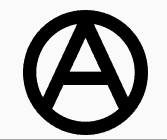An article in the Columbiamagazine, produced by the Washington State Historical Society, caught my eye: “Targeted for Deportation: Immigrant Labor Radical Becky Beck. . .” Intriguing words to grab attention, the story of Rebecca “Becky” Beck. I’ll probably get a groan if I say it “beckoned” to me.
It turns out the Becky Beck was accused of being an anarchist and attempts were made to deport her. There were no witnesses, so the assumption is that the “anonymous” tip that was used to try the case came from the garment manufacturers upset with Beck’s union activities among the garment workers of Seattle. They weren’t having much luck with the charges and so they resorted to a section in the 1903 Immigration Act, largely known as the Anarchist Exclusion Act.
The thing that struck me was the language used to describe people who could not be admitted to the United States. The lengthy list starts with, “idiots, insane persons, epileptics.” Further down in the list are felons, polygamists, people who want to overthrow the government of the United States, and eventually the provision used against Becky Beck, “persons who procure or attempt to bring in prostitutes or women for the purpose of prostitution. . .”
I was wondering why the language didn’t say “women who are prostitutes.” It reads as if prostitutes and women are two different things. Perhaps this explains a lot about how women are still viewed today. Are women who are openly sexual still considered less than “women?”
The argument in court was that her companion, Jack Solomon, brought Beck into this country when she was underage, so clearly he intended to utilize her as a prostitute. This, of course, would provide grounds to deport Solomon, the perpetrator, but also Beck, in spite of the fact that she was the victim. Immigration records showed that Beck had entered the country before Solomon, so the prosecution was not successful using this argument either. Becky Beck remained in the United States until her death.

